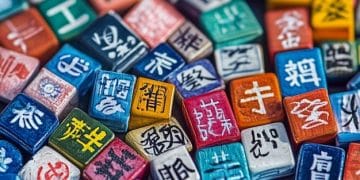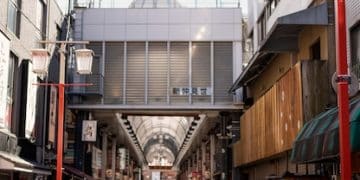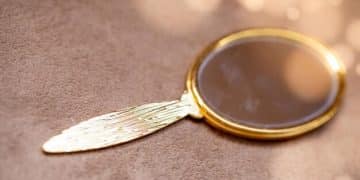US shopper’s guide: Avoid fake brands in Japan
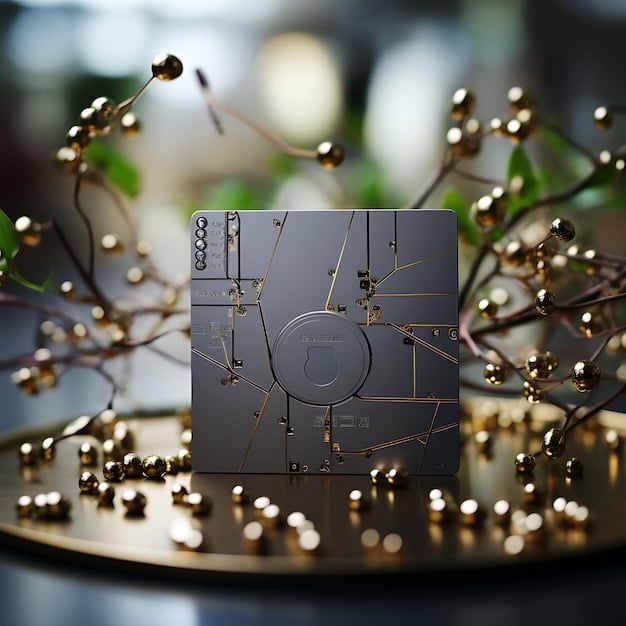
Navigating Japan’s vibrant shopping scene as a US traveler requires vigilance to distinguish authentic designer goods and local crafts from expertly crafted counterfeits, ensuring your purchases are genuine, ethically sourced, and compliant with import regulations.
For US shoppers, the allure of Japan extends far beyond its exquisite cuisine and breathtaking landscapes; it encompasses a treasure trove of unique products, from cutting-edge electronics to traditional crafts and, of course, luxury brands.
However, amidst this shopper’s paradise, a subtle but significant challenge lurks: the presence of counterfeit goods. Avoid fake brands in Japan becomes crucial for any discerning US traveler looking to ensure their purchases are authentic, valuable, and comply with international regulations.
Understanding the counterfeit landscape in Japan
The perception that Japan is entirely free of counterfeit goods is a common misconception among many international shoppers. While significantly less prevalent than in some other global markets, fake products, particularly high-end luxury items, can occasionally surface.
These often appear in less reputable outlets or through online channels that target unsuspecting tourists. The Japanese market prides itself on quality and authenticity, and strong legal frameworks exist to combat piracy.
However, the sheer volume of global trade and tourism means that no country is entirely immune. To stay safe, travelers should avoid fake brands in Japan by understanding that even a highly regulated market can have exceptions.
Recognizing that counterfeits can slip through the cracks encourages vigilance without discouraging travelers from enjoying the incredible retail opportunities Japan has to offer.
Common types of counterfeit goods
When shopping in Japan, vigilance is important across several product categories where counterfeiting is more likely. While electronics and traditional Japanese crafts are generally safe, luxury items, designer clothing, and certain branded accessories are the most susceptible.
Luxury handbags from Louis Vuitton or Gucci, designer apparel with bold logos, and watches from Swiss or Japanese brands are prime targets. These are categories where counterfeiters invest heavily in replication because of high demand and strong brand recognition.
Understanding where counterfeits are most likely to appear is the first step to avoid fake brands in Japan and ensure that your purchases hold true long-term value.
Why counterfeits exist even in Japan
The presence of counterfeit items in Japan, despite stringent laws and a culture valuing authenticity, can be attributed to global supply chains and high tourist demand for luxury items. Tourists less familiar with Japanese shopping norms can become easy targets.
Counterfeiters know that travelers may not have time to investigate every detail or verify every shop, which makes them more vulnerable to impulse purchases. This reality creates opportunities for fake products to circulate, even in a country celebrated for trust and precision.
Therefore, the responsibility falls partly on the shopper: to remain alert, research before buying, and always avoid fake brands in Japan by questioning deals that appear unusually good.
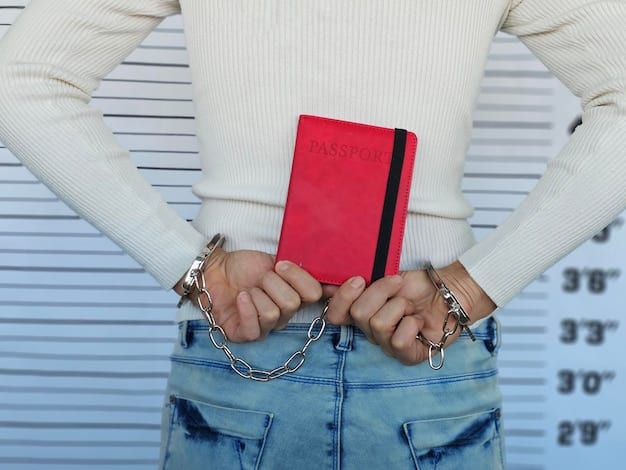
Identifying red flags: key indicators of fake products
Spotting a counterfeit item often comes down to paying close attention to details that a casual glance might miss. Counterfeiters cut corners on materials, craftsmanship, and packaging.
To confidently avoid fake brands in Japan, shoppers should train their eyes for small but telling details, combining intuition with practical knowledge.
The shopping experience becomes safer when buyers recognize that no single clue confirms authenticity, but a combination of factors can strongly indicate whether an item is real or fake.
Price that’s too good to be true
Luxury items sold at extreme discounts almost always indicate counterfeits. Genuine goods rarely get such markdowns, so staying skeptical is one way to avoid fake brands in Japan.
Always question prices that fall far below market value, because in most cases the savings are not worth the risk of ending up with worthless or illegal goods.
Poor quality and inconsistent details
Look for uneven stitching, flimsy materials, or distorted logos. These small flaws can help you avoid fake brands in Japan effectively. Brands spend years perfecting their finishes, and inconsistencies are strong warning signs that a product is not authentic.
Packaging and documentation discrepancies
Low-quality printing, fuzzy text, or mismatched serial numbers are strong signs of counterfeits. Inspecting packaging carefully is another step to avoid fake brands in Japan.
Since authentic items come with precise branding, genuine paperwork, and high-quality accessories, these details should never be ignored.
Where to shop safely in Japan
Knowing where to shop is as important as knowing what to avoid. In a country with so many shopping options, choosing the right venues ensures peace of mind and enhances your overall experience.
The principle is simple: buy only from sellers that have a reputation for authenticity.
Authorized retailers and department stores
Department stores like Isetan, Mitsukoshi, and Takashimaya are renowned for authenticity. Choosing them ensures you avoid fake brands in Japan without worry.
These establishments maintain strict supply chains and work directly with brands, leaving no room for counterfeit infiltration.
Reputable vintage and second-hand shops
Shops such as Komehyo and Daikokuya employ experts to authenticate goods. Shopping here lets you avoid fake brands in Japan while enjoying unique finds.
These stores provide certificates of authenticity, making them ideal choices for travelers interested in high-quality second-hand luxury.
What to avoid: street vendors and unofficial markets
Street vendors and unverified online shops are the riskiest. Prices may be tempting, but fakes dominate these spaces. To stay safe, always avoid fake brands in Japan by sticking to established stores.
While bargain hunting might seem attractive, the risks far outweigh any possible rewards when dealing with unauthorized sellers.
Legal implications for US shoppers
Understanding legal risks is just as important as spotting counterfeits. Buying counterfeit goods might feel harmless, but the consequences can extend beyond Japan and follow you home.
Japan’s laws on counterfeiting
Selling counterfeits is illegal in Japan, with hefty fines for offenders. Buyers risk being defrauded. Staying informed helps you avoid fake brands in Japan and legal issues abroad.
Authorities in Japan actively target counterfeit sellers, but enforcement cannot cover every transaction, reinforcing the need for personal responsibility.
US customs regulations and penalties
US Customs confiscates counterfeit items upon entry. Fines, penalties, or even felony charges can apply. The best way forward is simple: avoid fake brands in Japan before bringing items home.
American authorities treat counterfeiting seriously because it threatens consumer safety and national industries, so prevention is the only safe route.
Personal use vs. commercial use
Whether personal or commercial, counterfeit imports are illegal. Even one fake item can cause trouble. To be safe, always avoid fake brands in Japan completely.
While a single counterfeit bag may only result in confiscation, multiple items could indicate intent to resell and trigger severe legal action.
Steps to take if you suspect a fake purchase
Sometimes, despite caution, mistakes happen. Knowing what to do is essential, and acting quickly can reduce financial loss and stress.
While still in Japan
If you discover a fake, report it and keep receipts. Taking quick action is key if you failed to avoid fake brands in Japan during purchase.
Even if you cannot recover your money, reporting sellers helps authorities track illegal operations and prevent further exploitation of other tourists.
After returning to the US
Do not attempt resale of counterfeit goods. Disposing of them is often the only option. The ultimate strategy is prevention: always avoid fake brands in Japan from the start.
Credit card protections may sometimes offer recourse if proof of fraud exists, but this is not guaranteed, especially with overseas purchases.
Tips for smart shopping in Japan
Smart shopping goes beyond avoiding fakes. It includes cultural awareness, tax rules, and brand research. Preparing ahead of time not only keeps you safe but also maximizes the enjoyment of shopping in one of the most dynamic retail cultures in the world.
Know your brands and their official stores
Research official boutiques before traveling. This preparation ensures you avoid fake brands in Japan confidently. Being familiar with authentic design elements and store locations provides peace of mind when exploring shopping districts.
Take advantage of tax-free shopping
Legitimate stores often provide tax-free deals for tourists. Choosing them helps confirm authenticity and lets you avoid fake brands in Japan with ease. Tax-free benefits are only available at verified retailers, offering yet another safeguard against counterfeits.
Be mindful of customs declarations
Declare all purchases honestly at US customs. With genuine products, this process is simple. By choosing authentic goods, you avoid fake brands in Japan naturally. Transparency not only avoids penalties but also ensures smooth travel experiences in the future.
Ethical considerations and supporting authentic creators
Buying authentic products is also about supporting artisans and innovation. When you opt for real goods, you are directly contributing to the preservation of craftsmanship and the growth of legitimate businesses.
The true cost of counterfeits
Counterfeit sales harm legitimate businesses, exploit labor, and fund organized crime. By choosing to avoid fake brands in Japan, you contribute to ethical consumerism.
Every counterfeit purchase has ripple effects that go beyond the individual buyer, impacting economies and human rights worldwide.
Supporting Japanese artisans and innovation
Authentic purchases sustain cultural traditions and fuel innovation. Each time you avoid fake brands in Japan, you invest in true craftsmanship and fair business.
Whether buying traditional crafts from Kyoto artisans or cutting-edge electronics from Tokyo, supporting genuine creators makes your purchases meaningful and lasting.
Shopping in Japan is an adventure blending tradition, luxury, and modernity. But counterfeit goods remain a hidden risk for US travelers. By spotting red flags, choosing reputable sellers, and respecting legal frameworks, you ensure your shopping trip is safe and rewarding.
The golden rule is clear: always avoid fake brands in Japan. Doing so protects your finances, prevents legal trouble, and supports the genuine artisans and businesses that make Japan’s shopping culture so exceptional.
Every purchase becomes more than a transaction, it becomes a statement of integrity, respect, and authenticity.
| Key Point | Brief Description |
|---|---|
| 🕵️♂️ Spotting Fakes | Look for unusually low prices, poor stitching, misaligned logos, and cheap packaging on luxury goods. |
| 🛍️ Safe Shopping Spots | Prioritize official brand boutiques, major Japanese department stores (e.g., Isetan), and reputable electronics chains. |
| ⚖️ Legal Risks | Importing counterfeits into the US can lead to confiscation, fines, and even felony charges, regardless of intent for personal use. |
| 🌱 Ethical Shopping | Support legitimate businesses and artisans by choosing authentic products, avoiding the unethical practices behind counterfeiting. |
Frequently Asked Questions (FAQ) about avoid fake brands in japan
While Japan has strong anti-counterfeiting laws and a culture of quality, counterfeits, especially luxury goods, can occasionally be found. They are less pervasive than in some other countries but still exist, primarily through less reputable channels or informal vendors. Shoppers, particularly tourists, should remain vigilant.
Legally, the primary focus in Japan is on those who produce and sell counterfeit goods. As a tourist, you’re not likely to face legal charges for an unwitting purchase. However, the real risk comes upon re-entering the US, where importing counterfeit items is illegal and can lead to confiscation and penalties.
The best way is to only buy from authorized retailers, official brand boutiques, and major department stores. For second-hand luxury, choose reputable vintage stores known for their authentication expertise. Be suspicious of street vendors or abnormally low prices, which are immediate red flags.
If US Customs and Border Protection identifies a counterfeit item, it will be seized. You will lose the item and any money spent on it. Depending on the value and quantity, you could also face fines. It’s also illegal to resell a known counterfeit item in the US.
Generally, yes. Tax-free status is granted by the Japanese government to official businesses, meaning they operate legitimately. This indicates a higher likelihood of selling authentic goods than unverified sellers. It’s a good indicator, but still combine it with other red flag checks.
